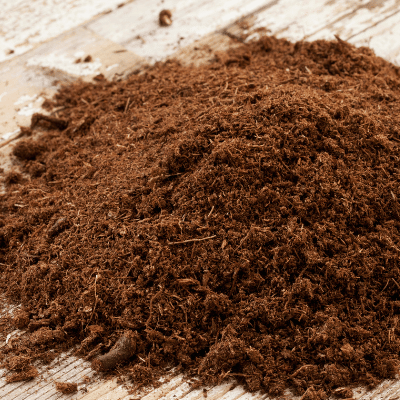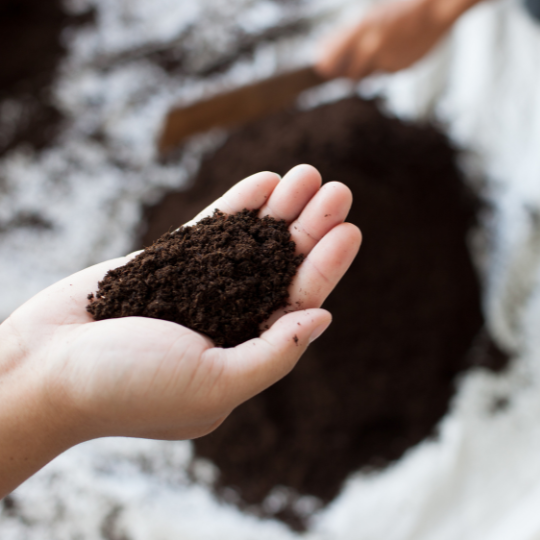If you’re curious about the best coco peat 25kg bags prices, cocopeat fertilizers, cocopeat brick, packs, and high-quality assortment, you’re in the right place. Let’s delve into the historical context of this versatile gardening material, mulch, mined peat moss, and succulents, and uncover where to find the most competitive deals. Whether you’re a seasoned gardener or just starting, understanding the pricing dynamics can help you make informed decisions for your gardening needs.

Factors Affecting Coco Peat 25kg Bags Prices
Quality and Grade
Coco peat prices are influenced by the quality and grade of the product. Higher quality coco peat, which is free from impurities and well-processed, commands a premium price due to its superior water retention and aeration properties. On the other hand, lower-grade coco peat may be more affordable but could lack the desired characteristics for optimal plant growth.
Supply and Demand
The balance between supply and demand plays a crucial role in determining coco peat prices. Fluctuations in demand from horticultural industries, nurseries, and home gardeners can impact prices. Seasonal variations in production levels can lead to price changes based on the availability of coco peat in the market.
Production Costs
Production costs, including expenses related to harvesting, processing, packaging, and transportation, directly influence coco peat prices. Factors such as labour costs, energy expenses for processing facilities, and equipment maintenance contribute to the overall cost of producing coco peat. Any increase in these production costs can result in higher prices for consumers.
Import and Export Fees
Import and export fees imposed by governments on the trade of coco peat can affect its final price. Tariffs, taxes, and duties levied on imported or exported coco peat can add to the overall cost. International trade agreements and regulations also play a role in determining the final price of coco peat products.

Market Trends for Coco Peat
Current Price Trends
Coco peat prices fluctuate based on market demand and supply, with factors like harvesting seasons influencing costs. The current reasonable cocopeat price stands at £XX per metric ton, offering affordability to buyers.
- Prices may vary due to geographical locations of suppliers.
- Quality coco peat commands a premium price due to its superior characteristics.
Seasonal Variations
During peak harvesting seasons, such as after monsoons, coco peat prices tend to decrease. Conversely, dry weather conditions can lead to a surge in prices due to reduced availability.
- Suppliers often adjust prices to reflect seasonal fluctuations.
- Consumers can benefit from lower prices by purchasing during off-peak periods.
Innovations in Production
Recent advancements in coco peat production have led to increased efficiency and quality control, impacting prices positively. Innovations like automated processing have streamlined operations, resulting in competitive pricing.
- Adoption of sustainable practices has enhanced the eco-friendly image of coco peat.
- Improved production techniques have contributed to a consistent supply, stabilizing prices.
Consumer Preferences
Consumers increasingly favour coco peat due to its environmentally friendly nature and nutrient-rich properties. The rising awareness of sustainable alternatives has driven demand, influencing market dynamics.
- Growing interest in organic farming has boosted the demand for premium coco peat in order.
- Consumers value the versatility and long-lasting properties of coco peat for various agricultural applications.
Regional Price Differences
Asia
In Asia, coco peat 25kg bags are priced competitively due to abundant supply and local production. The low price is a result of proximity to major coconut-producing countries like India and Sri Lanka. Farmers in countries such as India benefit from additional discounts on bulk purchases.
Europe
In Europe, the price of coco peat 25kg bags tends to be higher compared to Asia due to import costs and transportation expenses. Despite this, European buyers appreciate the product’s quality and eco-friendly nature. Some suppliers offer additional discounts for large orders to attract more customers.
North America
North America experiences varying prices for coco peat 25kg bags depending on the region. Coastal areas with easier access to imports may have lower prices compared to inland regions. The availability of additional discounts is influenced by market demand and seasonal factors.
Other Regions
In other regions such as Africa and Oceania, the prices of coco peat 25kg bags are influenced by factors like import costs, local demand, and distribution networks. While some areas may have low prices due to proximity to manufacturing hubs, others might experience higher costs due to logistical challenges.

Benefits and Applications of Coco Peat
Soil Improvement
Coco peat, a natural coconut peat product, enhances soil structure, promoting aeration and root growth. It helps sandy soils retain moisture, improving fertility over time.
- Enhances soil structure
- Aids in aeration and root growth
- Improves sandy soil fertility
Water Retention
Coco peat acts as a sponge, absorbing and retaining water efficiently. It reduces the need for frequent watering, making it ideal for drought-prone areas or plants requiring consistent moisture.
- Acts as a water-absorbing sponge
- Reduces the need for frequent watering
- Ideal for drought-prone areas
Hydroponics Use
In hydroponics, coco peat serves as an excellent growing medium due to its water retention properties. It provides essential support for plant roots while allowing optimal nutrient absorption in a soil-less environment using natural coconut peat product.
- Excellent growing medium for hydroponics
- Provides support for plant roots
- Facilitates optimal nutrient absorption
Seed Starting
When used for seed starting, coco peat promotes germination by maintaining moisture levels around seeds. Its light texture aids in easy root penetration and initial seedling growth.
- Promotes seed germination
- Maintains moisture levels around seeds
- Aids in root penetration and seedling growth
Comparing Coco Peat with Alternatives
Coconut Husk Chips
Coconut husk chips, derived from the outer layer of coconuts, serve as an alternative to coco peat. These chips offer excellent aeration and drainage properties, ideal for enhancing soil structure. They are commonly used in orchid cultivation due to their ability to retain moisture effectively.
Crushed Husk
Crushed husk, another substitute for coco peat, is a by-product of coconut processing. It provides good drainage and aeration, promoting root growth in plants. This material is often utilised in landscaping and as a growing medium for various crops.
Peat Moss
Peat moss, although similar to coco peat, is harvested from decomposed sphagnum moss. It has high water retention capabilities but can be acidic, affecting certain plant species negatively. Gardeners often mix peat moss with other materials to balance its pH levels.
Perlite
Perlite, a mineral derived from volcanic rock, is a lightweight alternative to coco peat. It improves soil aeration and drainage while preventing compaction. Gardeners frequently use perlite in potting mixes to enhance root development and overall plant health.

Closing Thoughts
In understanding the factors influencing coco peat prices, recognising market trends, and comparing its benefits with alternatives, you’ve gained valuable insights into the world of coco peat. Regional price differences highlight the dynamic nature of this market, offering opportunities for informed decision-making. As you explore the applications of coco peat further, consider its versatility and eco-friendly nature, making it a sustainable choice for various industries.
To leverage this knowledge, stay updated on market shifts, seek suppliers that align with your values, and experiment with coco peat in different settings to fully grasp its potential. By staying informed and proactive, you can make informed choices that benefit both your projects and the environment.
Frequently Asked Questions
What are the key factors influencing Coco Peat prices?
Coco Peat prices are influenced by factors such as demand-supply dynamics, quality of the product, production costs, geographical location, seasonal variations in availability, and order.
How do Market Trends impact Coco Peat pricing?
Market trends play a significant role in determining Coco Peat prices. Factors like global demand, agricultural practices shifting towards sustainable alternatives, and innovations in Coco Peat production methods can all affect pricing.
Are there noticeable Regional Price Differences for Coco Peat?
Yes, regional price differences for Coco Peat can vary due to factors such as transportation costs, availability of raw materials, local market demand, infrastructure, and government regulations impacting trade.
What are the Benefits and Applications of using Coco Peat?
Coco Peat offers benefits such as excellent water retention, aeration properties for plant roots, biodegradability, and suitability for organic farming. It is commonly used in horticulture, hydroponics, seed starting mixes, soil conditioning, and as a natural coconut peat product.
How does Coco Peat compare with its Alternatives?
Compared to alternatives like peat moss or vermiculite, Coco Peat is renewable, eco-friendly, has better water retention capabilities, and is pH neutral. It also provides good insulation for plant roots and aids in preventing soil compaction.
In conclusion, if you are eager to delve deeper into the details of coir products, feel free to explore our website at www.bertwin.com.au. Additionally, for direct and instant connection with our team, you can reach us through the following WhatsApp link here. We look forward to providing you with the information and assistance you need.
Read also : Ultimate Convenience with Wood Pellet 15kg Bags: Perfect for Home and Outdoor Adventures
